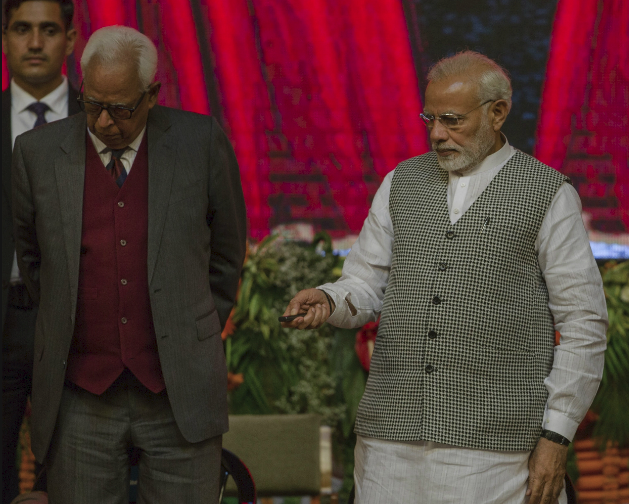PM Modi has not hesitated to carry out bold water-related projects despite the biased Indus Water Treaty (IWT) and Pakistan’s repeated wolf-cries regarding the same. Pakistan opposed the inauguration of 330 MW Kishanganga Hydroelectric Power Station in Jammu and Kashmir and said that the project is the violation of IWT. “Pakistan believes that the inauguration of the project without the resolution of the dispute is tantamount to violation of the Indus Waters Treaty (IWT)” a Foreign Office (FO) statement said on Friday. As soon as PM Modi inaugurated 330 megawatt Kishanganga hydroelectric power station, Pakistan said that it has sent a four-member delegation to Washington to raise the issue of India’s alleged violation of the 1960 Indus Waters Treaty. India completed this project despite the protests from Islamabad. In 2007, construction of the Kishanganga hydroelectric power station commenced and was believed to be complete in 2016 but in 2011, due to protest of Pakistan, it was temporarily stopped by The Hague’s Permanent Court of Arbitration (CoA).
Pakistan is crying foul and making baseless accusations of violation of Indus water Treaty (IWT). According to the IWT, water of Beas, Ravi and Sutlej rivers is allocated to India, while the waters of Indus, Chenab and Jhelum are to be taken care by Pakistan. According to the Treaty, India is allowed to use the water of the western rivers allotted to Pakistan for ‘non-consumptive uses’. Which means that India can build the dams and the Hydroelectric power station, use for domestic and agricultural purposes the water of Jhelum and Chenab, but have to ensure uninterrupted flow of water which do not change the course of the river and also do not decrease the water level downstream.
This is not the first time that Pakistan has approached to the World Bank to flag concern over projects of India. Earlier in the past as well Pakistan has, multiple times, advanced to the World Bank raising concern over designs of India’s five ambitious hydroelectricity projects – Pakal Dul (1000 MW), Ratle (850 MW), Kishanganga (330 MW), Miyar (120 MW) and Lower Kalnai (48 MW) – being either built or planned in the Indus river basin, saying these projects violate the Indus Water Treaty. Pakistan creates hoax outrage over development project works of India in J&K.
Kishanganga hydroelectric power station includes inter-basin transfer of water. It will divert water from the Kishanganga River in the Gurez valley to a power station located in Bonar Nallah in Bandipora using a 23.65-km-long tunnel dug across mountains, to generate electricity and then sends it back through a different route to the river at the point where it merges with the Jhelum in Pakistan Occupied Kashmir. Total cost of the project is Rs 5,750 crore. It is spread over 379 hectares across two Valleys. It would produce 1,713 million units of electricity annually.
PM Modi, while inaugurating the Kishanganga hydroelectric project, also laid the foundation stone of the Pakal Dul Power Project in Jammu & Kashmir. Pakal Dul, with 1000 MW capacity, will be the largest Hydro Power Project in Jammu & Kashmir upon completion. Development of Jammu and Kashmir has been on the priority list of PM Modi. Government is trying its level best to bring the Kashmiri youths into mainstream by generating employment opportunities in Jammu and Kashmir. It is estimated that the Kishanganga hydroelectric project engaged about 1850 local persons during construction stage and 750 local persons during operation stage through direct and indirect employment. Pakal Dul project also will have immense benefits for J&K. Around 3000 persons would get employment directly or indirectly during construction phase of the project. Furthermore, around 500 persons would get employed directly or indirectly during operation phase of the Project. PM Modi has repeatedly reiterated that there is no alternative to peace and stability except development.
